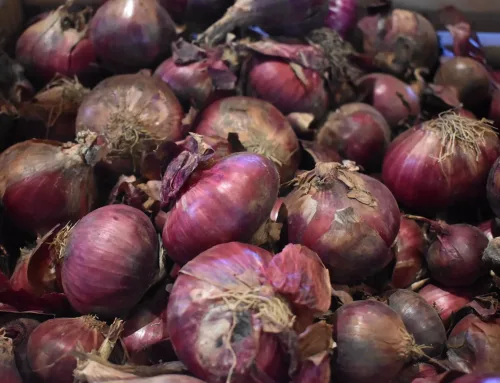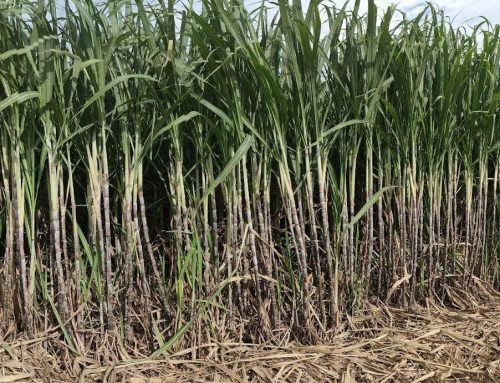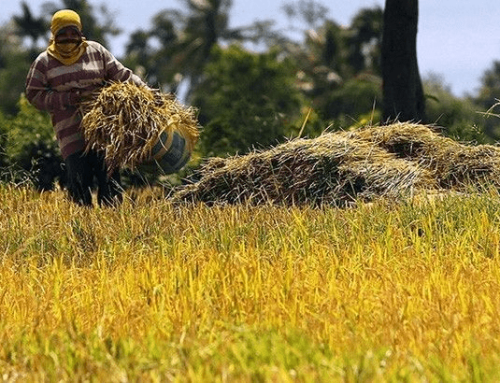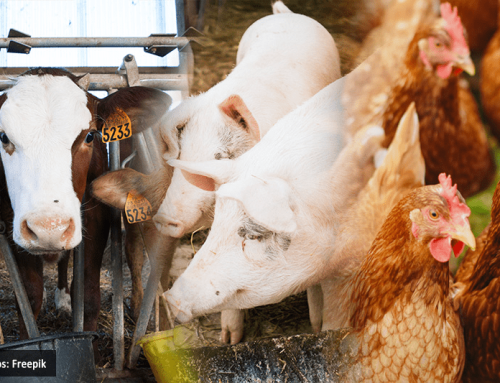In this Article
Examine the ongoing African Swine Fever (ASF) outbreak’s effect on the hog industry, the resulting fluctuations in pork prices, and key DOST-PCAARRD efforts to improve disease control and support local producers.
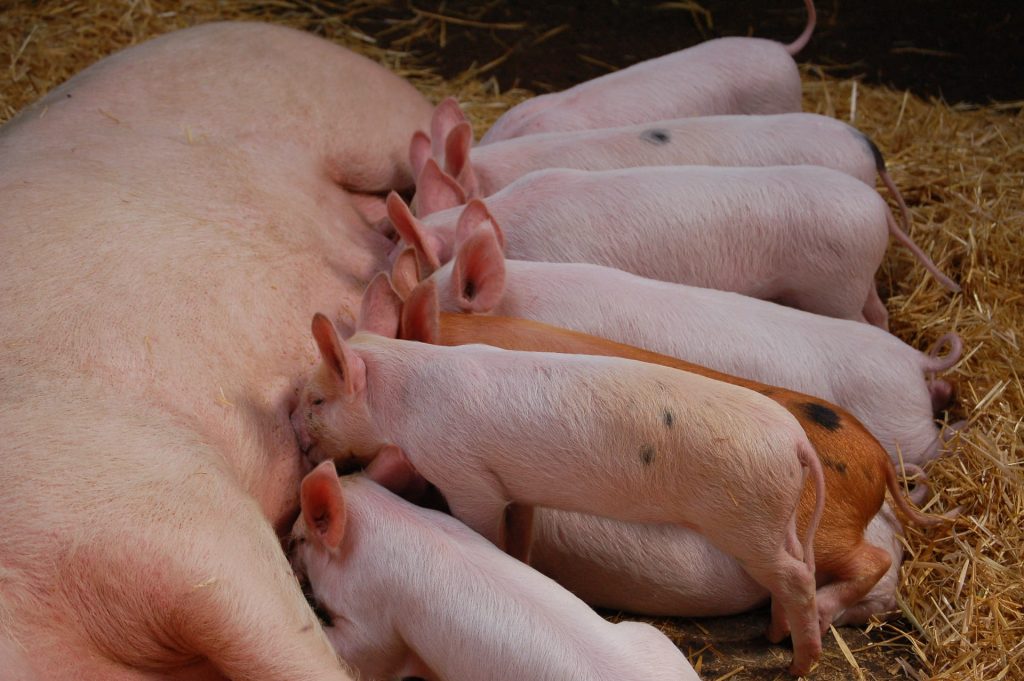
African Swine Fever (ASF) Outbreak Update
The African Swine Fever (ASF) outbreak emerged in Batangas in August (see article by clicking this link: https://tinyurl.com/AABHMarketAdvisory011) which prompted the Department of Agriculture (DA) to set up checkpoints to help halt the movement of infected hogs in Luzon while waiting for the arrival of the vaccines that the agency procured. The rapid spread of ASF in Batangas was suspected to be caused by dishonest traders selling infected pigs.
ASF continues to impact the hog industry in the country, with new cases reported across several regions. According to the Bureau of Animal Industry (BAI), as of September 20, 2024, thirteen (13) regions still have active ASF cases. These regions include the Cordillera Administrative Region (CAR), Ilocos Region, Cagayan Valley, Central Luzon, CALABARZON, MIMAROPA, Bicol Region, Western Visayas, Central Visayas, Eastern Visayas, Zamboanga Peninsula, SOCCSKSARGEN, and Caraga.
Table 1. Summary of Areas with Active ASF Cases as of September 20, 2024
|
Regions |
Provinces |
Municipalities |
Barangays |
|
13 |
31 |
125 |
524 |
Source: DA-BAI, 2024
ASF Market Effect
The ASF outbreak has significantly impacted the pork supply and demand. On September 26, 2024, the Pork Producers Federation of the Philippines (PPFP) reported that the country’s pork supply is expected to be sufficient for the upcoming holiday season. This stability is attributed to the lower demand in recent months, primarily driven by the ongoing ASF outbreak. Two major factors explain the decline in demand: consumer perception and risk aversion, where concerns about pork safety have led consumers to reduce consumption or switch to alternative sources; and the availability of substitute goods, such as chicken, which is perceived as safer and readily available.
Despite these concerns, ASF poses no risk to humans, even if contaminated pork is consumed. As Fernandez-Colorado et al. (2024) noted in their paper, “African Swine Fever in the Philippines: A Review on Surveillance, Prevention, and Control Strategies,” the African Swine Fever Virus (ASFV) is specifically adapted to infect pigs and certain related species, and it cannot infect humans or other non-swine animals. The consumption of pork from infected pigs does not present any public health threat to consumers.
The drop in pork demand has significantly impacted farmgate prices and retail prices. The Samahang Industriya ng Agrikultura (SINAG) reported a steep decline in live hog prices, falling by Php 60 to Php 80 per kilogram (kg). As of August 29, 2024, the average farmgate price for live hogs dropped from Php 240 per kg to Php 160 and Php 180 per kg. SINAG Executive Director Jayson Cainglet attributed this decline to a shift in consumer preference toward chicken, further reducing demand for live hogs and causing prices to fall.
Retail prices have also been affected, particularly pork shoulder (kasim) and pork belly (liempo). Based on the DA Price Monitoring database, as of September 28, 2024, the average price of kasim fell by Php 7 per kg, while liempo dropped by Php 8 per kg between August and September. The lower prices may provide relief to consumers but may negatively affect the hog producers, particularly smallholder farmers, who may struggle to maintain profitability with reduced income To sum up, these reductions reflect the continuing impact of the ASF outbreak on consumer demand and market prices for pork products.
Table 2. Average Retail Price per Kilogram of Selected Pork Products in Metro Manila
|
Retail Level |
Price in August |
Price in September (Php) |
Price Decrease (Php) |
|
Kasim (Shoulder) |
324.57 |
316.22 |
8.35 |
|
Liempo (Belly) |
367.32 |
359.67 |
7.66 |
Source: DA Price Monitoring, 2024
Despite the current low farmgate and retail prices, PPFP expects pork prices to rise during the holiday season due to the increased demand. Retail prices, particularly for pork belly, could climb from Php 380 to Php 400 per kg. PPFP President Rolando Tambago explained that the anticipated price hike is partly driven by the multiple layers of traders and retailers, which add costs as pork moves through the supply chain. However, he noted that while a price increase is likely with higher holiday demand, it may not be substantial if demand remains stable and does not see a drastic increase.
ASF Control Measures
ASF AVAC Vaccine Inoculation
On August 30, 2024, the Department of Agriculture (DA) began administering the AVAC vaccine, allocating 10,000 doses sourced from Vietnam at Php 1,200 per dose. The AVAC ASF Live vaccine, proven to be 95% effective, is the only commercially available vaccine to combat ASF. It is safe for intramuscular injection in pigs aged 4 to 18 weeks, requiring just one injection without causing shock or local inflammation. By September 17, 2024, the DA announced that 25 of the 41 pigs injected with the vaccine in Batangas developed antibodies within 14 days post-vaccination. It was noted that six of the inoculated pigs died, but these fatalities were due to preexisting conditions and not a result of the vaccine.
Agriculture Secretary Francisco Tiu Laurel Jr. emphasized the critical role of the vaccination campaign in restoring confidence in the swine industry, particularly for small hog producers and backyard farmers. As of September 6, 2024, the ongoing outbreak of African Swine Fever (ASF) has resulted in the culling of 7,900 hogs in a province. To enhance vaccination efforts, the DA has secured Php 300 million to procure an additional 600,000 doses of the AVAC vaccine, with plans for completion by December 2024.
DOST-PCAARRD Initiatives Against ASF
In response to the escalating ASF crisis and its impact on the swine industry, the Department of Science and Technology – Philippine Council for Agriculture, Aquatic, and Natural Resources Research and Development (DOST-PCAARRD) has introduced several innovative solutions and research initiatives. In addition to the ASFV Nanogold Biosensor test kit and the herd immunity assessment project in Camarines Sur, both of which aim to enhance diagnostic capabilities and evaluate herd immunity for more effective ASF outbreak management, DOST-PCAARRD has launched two vital initiatives to address the ASF crisis in the country, focusing on improving disease surveillance and risk assessment in partnership with the University of the Philippines Los Baños (UPLB) College of Veterinary Medicine (CVM).
The program will conduct epidemiological surveillance to identify African Swine Fever Virus (ASFV), Swine Influenza Virus (SIV), and Classical Swine Fever Virus (CSFV) in various regions, develop a comprehensive surveillance system, and establish a disease profile database for backyard swine farms. Moreover, it will also focus on molecular detection and transmission risk assessment of ASFV in raw meat and processed pork products to enhance understanding of ASF epidemiology. Both projects aim to support the Philippine swine industry, benefiting stakeholders such as the BAI, Regional Animal Disease Diagnostic Laboratories (RADDLs), researchers, and academic institutions while ensuring the stability of the swine sector amid the ongoing ASF crisis. Both projects are ongoing and expected to be completed by December 2024.
Market Outlook
As the ASF outbreak continues to disrupt the swine industry, pork prices are expected to remain unstable. While the recent decline in consumer demand has temporarily lowered farmgate and retail prices, the upcoming holiday season is anticipated to increase in pork prices, particularly for high-demand cuts like pork belly. The introduction of the ASF vaccine may help stabilize supply in the long term. Still, in the short term, hog producers—especially small-scale farmers—are likely to face continued financial pressure as they navigate both the impact of the virus and the fluctuating market conditions.
References: Antonio, R. (2024, September 24). DA eyes completion of ASF vaccine procurement of 600k doses by December. Manila Bulletin. Retrieved September 24, 2024 from https://mb.com.ph/2024/9/24/da-eyes-completion-of-asf-vaccine-procurement-of-600k-doses#google_vignette
Arcalas, J.E. (2024, August 29). Hog farmgate prices drop due to ASF scare. Philippine Star. Retrieved September 30, 2024 from https://www.philstar.com/nation/2024/08/29/2381405/hog-farmgate-prices-drop-due-asf-scare#:~:text=MANILA,%20Philippines%20%E2%80%94%20Farmgate%20prices%20of%20live%20hogs%20have%20dropped
Cariaso, B. (2024, September 26). Increase in pork prices expected – hog raisers. Philippine Star. Retrieved September 26, 2024 from https://www.philstar.com/headlines/2024/09/26/2388045/increase-pork-prices-expected-hog-raisers
DA-BAI. (2024, September 20). National ASF Prevention and Control Program ASF Updates Bulletin #2024-09-02. Bureau of Animal Industry Website. Retrieved September 30, 2024 from https://www.bai.gov.ph/stakeholders?Rep=African%20Swine%20Fever
Fernandez-Colorado, C.P., Kim, W.H., Flores, R.A., Min, W. (2024, June 18). African Swine Fever in the Philippines: A Review on Surveillance, Prevention, and Control Strategies. National Library of Medicine Website. Retrieved October 2, 2024 from https://www.ncbi.nlm.nih.gov/pmc/articles/PMC11200829/
Recuenco, A. (2024 August 14). DA personnel, cops set up checkpoints to prevent spread of African Swine Fever. Manila Bulletin. Retrieved September 14, 2024 from https://mb.com.ph/2024/8/14/da-personnel-cops-set-up-checkpoints-to-prevent-spread-of-african-swine-fever
Santos, J. (2024, September 16). Close to 8,000 pigs culled in Batangas due to ASF—DA. Manila Bulletin. Retrieved September 30, 2024 from https://mb.com.ph/2024/9/16/close-to-8-000-pigs-culled-in-batangas-due-to-asf-da
Santos, J. (2024, September 17). Majority of pigs inoculated with ASF vaccine have developed antibodies, says DA. Manila Bulletin. Retrieved September 30, 2024 from https://mb.com.ph/2024/9/17/most-pigs-inoculated-with-asf-vaccine-develop-antibodies-says-da

